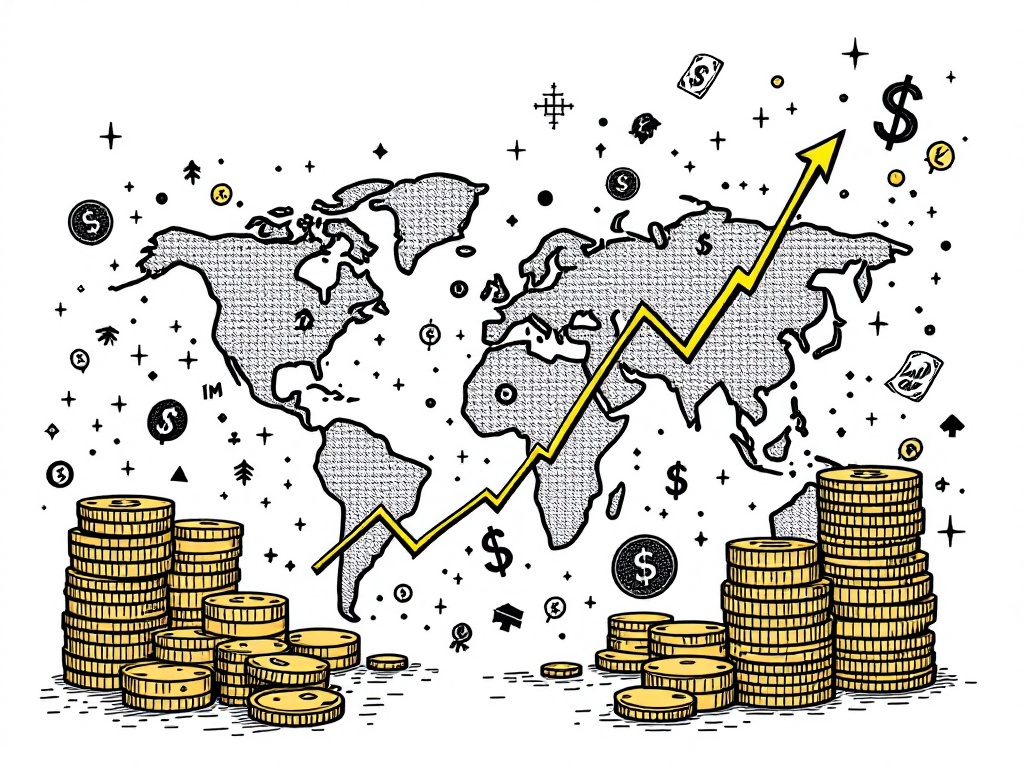IMF Adjusts Global Growth Forecast Amid Rising Tariffs

Washington D.C., Thursday, 24 April 2025.
The IMF has reduced global growth expectations to 2.8% for 2025 due to escalating tariffs and uncertainties, posing significant challenges for developed and emerging markets alike.
Contextual Overview of IMF’s Forecast Revision
The IMF’s revised global growth forecast downward, highlighting a reduction to 2.8% for 2025, a significant decrease from the previous projections made in January 2025. This reduction is largely attributed to the escalating economic uncertainty spurred by new, widespread tariffs enacted by the United States under President Trump, which have significantly disrupted global trade dynamics [1][2].
Key Drivers of Economic Downturn
The introduction of a comprehensive tariff increase, effective April 2, 2025, known as ‘Liberation Day,’ saw US tariffs rise to unprecedented levels, encompassing a 10% average tariff on most imports and up to 145% specifically on Chinese goods. These measures have amplified unpredictability in global markets, with the IMF’s world trade uncertainty index reaching levels seven times higher than in October 2024, reminiscent of the uncertainty during the COVID-19 pandemic [3][4].
Differential Regional Impacts
IMF’s downgrade touches various global regions differently. The US’s economic forecast has been notably downgraded by nearly a full percentage point due to these tariffs, projected to grow at just 1.8% in 2025. The Euro Area, likewise, faces downward adjustments in growth projections, anticipating a decline to 0.8% for 2025, while China’s forecast has been reduced to an anticipated growth of 4% in the same year [1][3][5].
Broader Economic Implications
IMF officials stress the critical need for stability in international trade policies to curtail further economic strain. The possibility of a global economic downturn has escalated, with probabilities increasing from 17% in October 2023 to 30% by April 2025. These changes underscore the necessity of coordinated economic strategies to manage the rising risks associated with these shifts in policy [2][4].